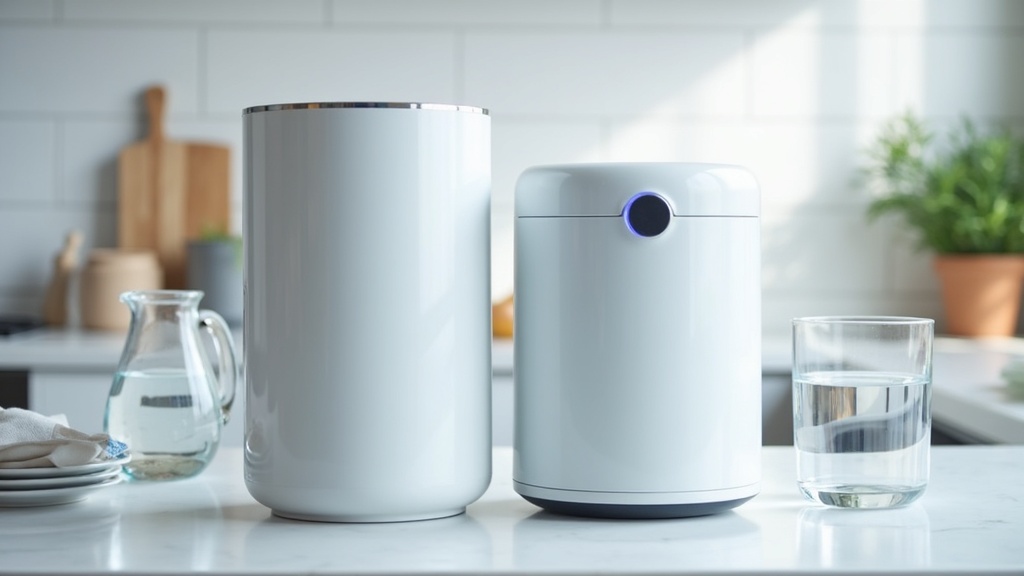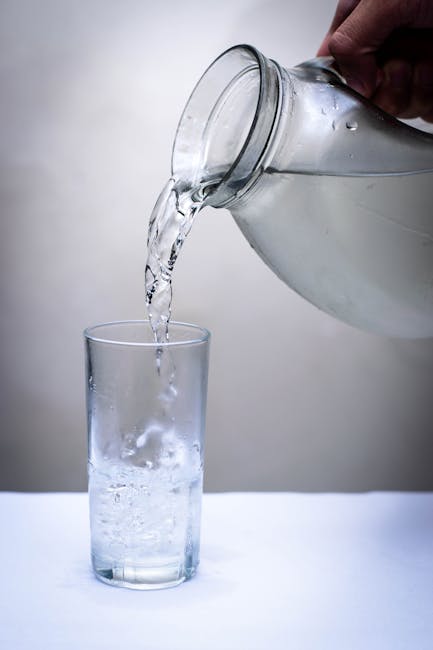
When it comes to getting clean drinking water at home or on the go, two common products pop up everywhere: water filters and water purifiers. Both are designed to make your water safer and better tasting. But how do you know which one is right for your needs?
Water filters and water purifiers get mixed up a lot because they both help with water quality, but they aren’t exactly the same. It helps to know what sets them apart if you’re trying to solve a specific problem, like bad taste, chemical odor, or actual health risks from microorganisms in your water.
If you’re looking for a clear answer, this review will break down the major differences between water filters and water purifiers, explore how each works, and give you practical information to help you choose the best solution for your situation.
Overview: What Sets Them Apart?
What is a Water Filter?
A water filter removes impurities from water by physically blocking or trapping particles like dirt, sand, rust, chlorine, and sometimes certain chemicals. Most filters use activated carbon, ceramic, or mesh screens. They shine at making water taste better and look clearer by removing the substances that can give water a funky appearance or flavor.
Who Uses Water Filters Most?
- People living in cities with treated tap water that tastes weird
- Anyone who wants to remove sediment, chlorine, or mild chemical flavors
- Families who want better tasting water without a lot of fuss
Pros of Water Filters
- Affordable and widely available
- Very easy to install and use
- Improve taste and appearance of water fast
Cons of Water Filters
- Can’t remove bacteria, viruses, or most heavy metals
- Must be replaced regularly (cartridges or filters)
- Might not be reliable in places with poor water quality
What is a Water Purifier?
A water purifier goes a step beyond regular filtering. Purifiers remove not just dirt and chemicals but also harmful microorganisms, like bacteria, viruses, and protozoa. They often use technology such as reverse osmosis, UV light, chemicals (like iodine or chlorine), or advanced ceramic and carbon combos. These gadgets target the things that can make you sick, so they give a higher level of protection in tough situations.
Who Finds Purifiers Handy?
- Travelers going to places with questionable water sources
- Campers and hikers using river, lake, or stream water
- Folks concerned about serious health risks in their tap water
Pros of Water Purifiers
- Removes bacteria, viruses, and protozoa
- Better suited for areas with risky water sources
- Many options: portable, household, or whole building systems
Cons of Water Purifiers
- Usually more expensive than basic filters
- Some purifiers can be slow or require electricity
- May affect taste or require maintenance (replacement bulbs, membranes, etc.)
Feature Comparison: How Do They Stack Up?
- Performance Against Microbes
Why This Matters: Microorganisms like E. coli or viruses can make you ill. Some areas have higher contamination risks.
Water Filters: Remove particles and some chemicals, but let most microbes pass through.
Water Purifiers: Tackle bacteria, viruses, and protozoa, providing much safer water, especially in uncertain environments.
Choice for Microbes: Water purifiers take the prize if you need to deal with living organisms in your water. - Improving Taste and Smell
Why This Matters: Chlorine taste, musty odor, or metallic tang are common complaints.
Water Filters: Excellent at improving taste and removing odors from tap water.
Water Purifiers: Also effective, especially if they use carbon and extra stages. Some purifiers might even remove minerals that change the taste.
Choice for Taste: Both are good, but basic filters work fast and cost less. - Availability and Cost
Why This Matters: Affordability and accessibility make it easier to maintain clean water long term.
Water Filters: Cheaper up front, with low maintenance costs (replacement filters). Widely sold at stores.
Water Purifiers: Often cost more, especially UV or reverse osmosis systems, and may cost extra for replacement parts.
Choice for Budget: Water filters are a friendlier option if you’re watching your spending. - Ease of Use & Maintenance
Why This Matters: Nobody needs a complicated system in their kitchen or pack.
Water Filters: Usually easy to attach to faucets, put in pitchers, or carry as bottles. Just change the cartridge every few months.
Water Purifiers: UV and chemical purifiers need careful use. Some require power, batteries, or extra steps. Reverse osmosis needs installation but runs on its own once set up.
Choice for Ease: Water filters win for “set it and forget it.” Some portable purifiers can be pretty simple, too. - Use in Emergencies or Travel
Why This Matters: Travel, camping, or natural disasters call for reliable, portable solutions.
Water Filters: Lightweight bottled filters work well for most city water but not great for natural sources.
Water Purifiers: Portable purifiers shine when using river, lake, or unknown water. Great for emergency kits and international travel.
Choice for Travel: Purifiers are the safer bet when you can’t trust the water source.
User Experiences & Reputation
- Water Filters: Users like their convenience and simple installation. Some frustration exists over how often cartridges need changing or dropping water pressure in faucet models.
- Water Purifiers: Appreciated for peace of mind in tough conditions, but complaints mention price, upkeep, and slower flow rates with some models (like reverse osmosis).
General Reputation: Both types are well liked for different reasons. Filters offer everyday convenience; purifiers provide security in challenging environments.
Choosing the Right One for You
Water filters and water purifiers meet different needs, and figuring out what you need helps narrow down your decision. Here’s a quick way to spot which suits you best:
Pick a water filter if you:
- Just want better tasting tap water
- Live in an area with treated city water
- Prefer a quick, affordable solution
Go for a purifier if you:
- Travel to places with questionable water sources
- Enjoy hiking, camping, or being off grid
- Worry about bacteria or viruses in your water
Both water filters and water purifiers can be super useful for specific situations. Picking the right one boils down to understanding your water source and how much risk you’re comfortable with. When I had to choose for my own household, I went with a simple carbon filter for regular use and kept a compact water purifier handy for outdoor adventures. If you want pure peace of mind, a purifier covers more bases, but filters work great for day to day tap water improvements.
Got questions or personal stories about your own water system? Share your thoughts below!

